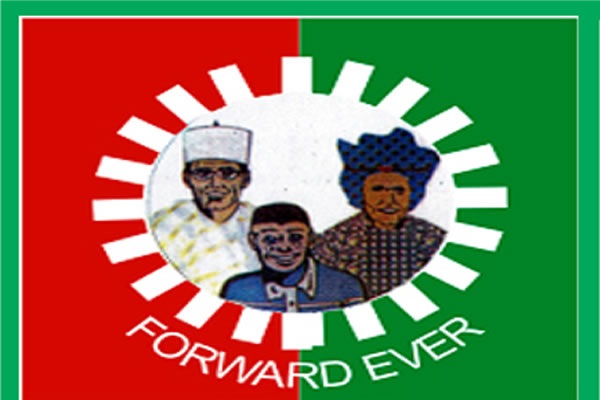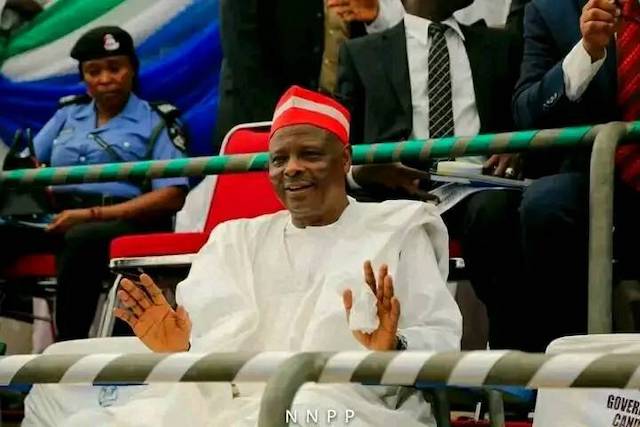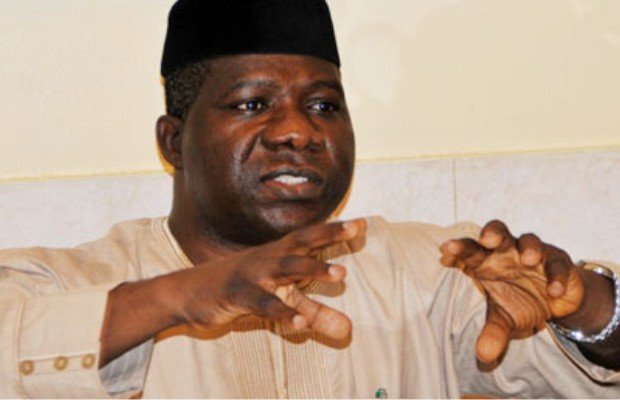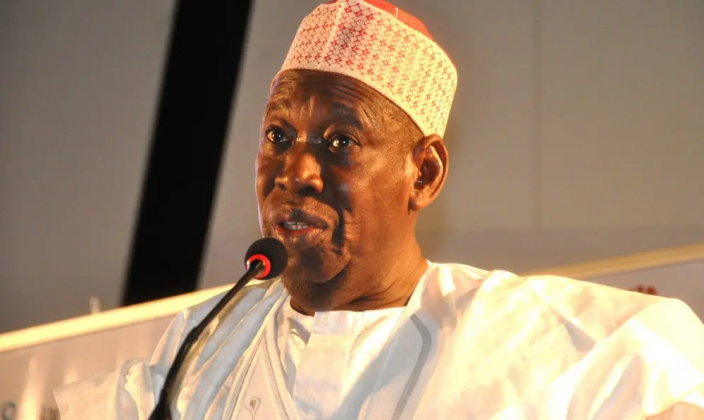Over the past month or so—particularly since Governor Sheriff Oborevwori and the entire political structure in Delta state defected to the ruling party —not a day has passed without a significant and consequential member or group of political actors from the opposition Peoples Democratic Party (PDP) defecting to the ruling All Progressives Congress (APC).
Metaphorically, the PDP is hemorrhaging, with critical members fleeing the party.
The alarming rate at which PDP members are shedding the party’s identity—as though it were a bad habit—includes not only regular members but also bigwigs ranging from some ex-governors and the incumbent governor to senators and members of the House of Representatives as well as state house of assembly members including even Local Govt. Area, LGA chairmen, and councilors.
In addition to the high-profile defections, rank-and-file PDP members are also making their way en masse to the ruling APC nationwide. This political migration is akin to the seasonal movement of birds or animals from their native habitats to new environments—often in search of more favorable breeding conditions, better climates, or simply survival.
Just last week the three PDP senators from Kebbi state visited President Tinubu in Aso Rock Villa to announce their imminent defection to the APC.
Beyond those that have openly defected, there are lots whose bodies are in their current political platforms but their souls are in the APC and plan to step out of the shadows at the appropriate time.
Given this wave of defections from various opposition parties to the ruling APC, Nigerian politicians appear to be behaving like the migrating animals just described.
The APC, like a pride of lions on the prowl, seems to have stumbled upon a herd of confused gazelles—the PDP—unsure of their direction or destiny. Like the lions which are carnivores, the APC is devouring the gazelles-opposition parties particularly, the PDP, but not excluding the Labor Party, and the New Nigeria National Party, NNPP.
Apart from the Delta state arm of the PDP, which has dissolved into the ruling party, elected politicians from the LP and NNPP stables are also pivoting to the APC without fanfare.
Arising from the above developments, the former ruling party has been severely weakened and battle-weary, worn down by unending internecine wars since 2010, when sitting president Umar Yar’Adua passed away and then Vice President Goodluck Jonathan inherited the presidency.
Apparently, what is currently unfolding in Nigeria’s political landscape can be likened to a concept from the business world: a “flight to quality” or “flight to safety.”
This is a financial market phenomenon where investors sell off riskier assets and turn to safer ones, such as gold or government bonds, to protect their investments.
At the moment, President Tinubu is increasingly projecting the image of a politically savvy leader—perhaps even a political maverick.
This is underscored by his use of realpolitik to gain ground, as he continues to reach out to governors across the political divide, regardless of party affiliations.
He reminds me of Senator Barack Obama, who, in his 2004 address at the Democratic National Convention, famously declared: “There is no blue America or red America; there is only the United States of America.”
By adopting a bipartisan approach, Obama broadened his base of support.
As a result, the then-freshman senator was able to defeat Hillary Clinton—the Democratic establishment’s favorite—in the primaries and later overcame all odds to defeat Republican Senator John McCain in the 2008 presidential election, serving as the 44th U.S. president from 2009 to 2017.
Now, I’ve heard former President Joe Biden blame Kamala Harris’s gender for her loss to Donald Trump in the 2024 presidential election. Just as l do not buy the rhetoric by PDP members that Tinubu is responsible for their woes,
I do not share the sentiment of the leadership of the Democratic party in the US that Kamala Harris’s gender alone was her Achilles heels.
In my view, several factors played a role in her loss, including the short campaign window of just four months, the immigration crisis that had reached epidemic proportions and overwhelmed the administration, and key “kitchen table” issues like high inflation manifesting as high cost of living—all of which created unfavorable political headwinds for her candidacy.
A combination of all these factors frustrated the electorate—along with the superior campaign skill and style deployed by her opponent, then highly experienced President Donald Trump. Enriched by his previous experience in office, Trump executed a strategic and convincing campaign, winning more popular votes, securing more electoral college votes, and capturing all seven swing states.
Trump’s emphatic victory is evidence of the kind of superior strategy that wins elections—a playbook that President Bola Tinubu appears to be replicating in Nigeria, thereby expanding the fortunes of his party, the APC.
In the U.S., the reality is that like Vice President Harris, former President Barack Obama also faced significant barriers to the White House because of his skin color—an impediment that had derailed the ambitions of numerous Black presidential hopefuls from both major parties before him.
Notably, before Senator Hillary Clinton’s bid for the White House in 2016, Shirley Chisholm—a trailblazer—was the first African-American woman to run for the Democratic presidential nomination in 1972. Chisholm faced both racial and gender biases that proved to be formidable obstacles which Harris might have also contended with in 2024. But they were not insurmountable with the right strategy as underscored by how Obama prevailed when faced with similar barriers.
Following Chisolm, Jesse Jackson was one of the blacks who made two attempts at the Democratic nomination in 1984 and 1988. Alan Keyes ran for the Republican nomination in 1996, 2000, and 2008. Carol Moseley Braun and Rev. Al Sharpton contested on the Democratic platform in 2004. Herman Cain joined the Republican race in 2012, Ben Carson in 2016, and most recently, Tim Scott in 2024.
A simple trend analysis reveals a common thread among all these candidates: none succeeded in winning the White House. This failure cannot be attributed solely to racial bias but also to their inability to craft a political message with broad appeal beyond the African-American and Hispanic communities as Obama did.
Together, Black and Hispanic populations make up about 30% of the U.S. demographic—14% and 16% respectively. Without expanding their appeal to the larger Caucasian electorate, the chances of any Black candidate securing the presidency were slim. That is why, before Obama, no Black candidate had ever succeeded in turning their aspiration into reality.
It is particularly striking that Shirley Chisholm—the first Black woman to run for president—faced the double disadvantage of race and gender, much like Vice President Kamala Harris contended with in 2024.
As it may be recalled, Hillary Clinton, a white female was on track to win the party primaries until Obama, through superior strategy and political brinksmanship, outmaneuvered her.
Clinton would later face Donald Trump in the 2016 presidential election. Although pre-election polls projected her as the favorite and she won the popular vote by nearly three million, Trump ultimately triumphed through the Electoral College—again, a demonstration of strategic superiority.
The context above underscores a crucial truth: political brinksmanship matters. It is what enabled Obama—a Black minority candidate—to overcome the challenges that had historically thwarted other Black aspirants, making him the first African-American president of the United States.
A similar “business-unusual” approach is what President Tinubu is now employing in Nigeria. Through legitimate means, he is effectively destabilizing, weakening, and disorganizing the opposition parties ahead of the 2027 election, positioning himself for re-election.
For that, he deserves to be credited for his political dexterity. The two closest rival parties in the 2023 presidential election—the PDP and the LP—are currently in disarray and disorganized, largely due to the leaders of the parties being bereft of basic ethos in leadership and the strategic political maneuvers such as the charm offensive unleashed by Tinubu and APC.
The Unraveling of the Opposition and APC’s Strategic Triumph.
The current state of affairs within the PDP and LP reminds me of the coordinated actions taken by President Ronald Reagan of the United States and Prime Minister Margaret Thatcher of the United Kingdom in December 1991. Together, after they discovered the prevailing economic weakness of the country on the other side of the Iron Curtain, the USSR, they plotted to dismantle the Union of Soviet Socialist Republics (USSR), which, like Humpty Dumpty in the famous nursery rhyme, had a great fall and could not be put back together again, and a remnant of which is Russia of today.
It is rather inconvenient but quite comfortable for the political class that halfway into Nigeria’s four-year electoral cycle, with general elections scheduled for 2027, both veteran and emerging politicians have begun jostling for tickets in anticipation of the next political season, a huge 24 months away.
In media statements, former President Goodluck Jonathan—who rose to the highest office under the PDP—raised the alarm that with President Tinubu’s conquests, or consolidation of his political influence, Nigeria may be drifting toward becoming a one-party state, a scenario he believes could be detrimental to the country’s fledgling democracy. He echoed concerns previously expressed by former Sokoto State Governor Attahiru Bafarawa, who alleged that the growing wave of defections is fueled by fear of the anti-corruption agency, EFCC, with opposition members joining the ruling party out of self-preservation.
Similarly, Dr. Umar Ardo, convener of the League of Northern Democrats, recently argued that politicians are abusing the constitutional provisions that prohibit elected officials from defecting while still occupying the positions they won on a different party platform. However, the same constitution permits defections if the politician can prove that it is a result of a serious crisis plaguing their party. In that context, Dr. Ardo’s assertion may not be entirely valid.
It appears instead that the hemorrhaging opposition parties have failed to effectively challenge these defections in court. When they do pursue legal recourse, their inability to prove that there are no internal party schisms as justification or insufficient evidence to establish that the party is in pristine condition and not wracked by crisis would prevent them from securing favorable judgments. This suggests that the parties themselves are bleeding membership due to self-inflicted wounds.
In my view, contrary to unsubstantiated claims that President Tinubu is using the EFCC to coerce defections, he appears to be employing a more subtle and strategic method—courting opposition figures as a groom woos a bride. A recent example is his state visit to Anambra, where Governor Charles Soludo warmly received him. In appreciation, President Tinubu was jointly honored with a chieftaincy title conferred by all the state’s traditional rulers—a symbolic endorsement of his outreach by ndi-Igbo.
In my assessment, Tinubu’s approach is part of a larger charm offensive aimed at winning hearts and minds across party lines, regardless of creed or political affiliation, as he positions himself for re-election in 2027. During his Anambra visit, he greeted the crowd in halting Igbo, calling them Ndi-Igbo—a term of endearment. He was also served popular local dishes like ukwa and abacha. Earlier, he was similarly welcomed in Enugu by Governor Peter Mbah where after commissioning remarkable projects executed by the PDP state governor, showers of encomiums were traded between the host and guest. During his visit to Katsina state, a praise song was composed by a popular local musician in his honor and performed at a banquet held by the state governor to welcome him.
That was after the president visited the war theatre and charged the commanders in the frontline to fish out the bandits and religious insurgents wreaking havoc on the lives of those living in the locations considered to be the ground zero for insecurity in Nigeria.
These engagements reflect personal efforts by President Tinubu to build goodwill while awaiting the tangible impact of his economic reforms. Though Nigeria’s macroeconomic fundamentals are reportedly improving, the effects have yet to trickle down to the average citizen, hence there still exists apathy. Therefore, claims that the EFCC is the tool behind the APC’s current political gains appear to ignore these broader, more nuanced efforts.
In truth, what afflicts the opposition parties is not fear of the EFCC—but leadership paralysis.
Let me illustrate this with a simple idiom from my native Ika dialect: “It is the grass that grows on a well-trodden path that invites being trampled.” Translated, this reflects the fate of the PDP and LP, which have exposed themselves to erosion by failing to address internal crises. As a result, they resemble vulnerable landscapes—barren and deteriorating under the weight of neglect and the pursuit of personal agendas by their leaders.
Disappointingly, the PDP, which ruled Nigeria from 1999 to 2015, now resembles a devastated terrain—akin to parts of Zamfara State scarred by illegal mining. The trenches and ditches left behind are symbolic of the reckless internal strife and lack of control within the party. While its leaders engage in endless legal battles, the APC continues to harvest its members—senators, governors, legislators, and local government officials.
The LP, which had a meteoric rise in 2023 with Peter Obi’s populist-driven campaign, is now facing a similar fate. After its surprising superlative performance in the 2023 presidential election and emerging as the second main opposition force, the party began to unravel almost immediately. Internal disputes, leadership disarray, and missed opportunities have weakened its structure significantly, such that it is no longer the winning machine that it used to be barely 24 months ago.
In an attempt to salvage the PDP, a meeting of its Governors’ Forum—hosted in Ibadan by Oyo State Governor Seyi Makinde—advised against any coalition with other opposition parties. Rather than heal wounds, the decision further alienated members, culminating in a massive defection in Delta State, where a wave of leaders and grassroots supporters switched allegiance to the APC. From governors and senators to local councilors, the exodus has been described as unprecedented and monumental.
In a last-ditch effort to stop the bleeding, Bauchi State Governor Bala Mohammed, who also chairs the PDP Governors’ Forum, convened a high-level meeting over the weekend. Attendees included acting National Chairman Iliya Damagun, former Senate President Bukola Saraki, and several former governors. Whether this effort can halt the party’s decline ahead of its upcoming National Working Committee meeting remains uncertain.
As I see it, the trials of the PDP and LP, and the triumphs of the APC, are not merely due to coercion or external manipulation as some PDP leaders are claiming. They are primarily the result of poor planning, shallow strategy, and leadership failure within the opposition. Conversely, it is the strategic and tactical brilliance of President Tinubu—marked by calculated outreach and political brinksmanship—that is driving the ruling party’s exponential growth.
While each party may have its version of the truth, one fact remains incontestable: the opposition parties are their own worst enemies. Their inability to maintain internal cohesion and vision has led them to the edge of political irrelevance.
Perhaps as a demonstration of political machismo and to bolster confidence amongst PDP members that have remained faithful, Sule Lamido, an ex-governor of Jigawa state and a PDP stalwart, has predicted that by accommodating politicians from multiple orientations and ideologies the APC will soon disintegrate with members returning to the APC. Something akin to the Big Bang theory in the political sphere.
That expectation appears to me as utopian because the APC after its founding in 2013 was deemed by skeptics as a Special Purpose Vehicle, SPV is expected to disintegrate after winning the presidency and more states in the 2015 general elections.
Perhaps due to some inbuilt mechanisms for coping with internal intrigues, APC has continued to wax stronger to the chagrin of the opposition parties that have been in the death throes like patients in Intensive Care Units, and ICU in hospitals.
Even worse is the fact that some aggrieved politicians who have quit or planning to quit the PDP and APC and are seeking to berth or migrate to the less visible parties such as the Social Democratic Party, SDP, are currently in limbo.
Unsurprisingly that crop of politicians is experiencing roadblocks with the hostile original owners of the party platform that they are eying.
That said, it is morning yet to decipher the possible outcome of the unfolding 2027 general elections that promises to be a showdown if the opposition parties get their acts right, or a no-show with the president cruising into his second term unchallenged in any significant shape or form.
Magnus Onyibe, is an entrepreneur, public policy analyst, author, democracy advocate, development strategist, alumnus of the Fletcher School of Law and Diplomacy, Tufts University, Massachusetts, USA, and a Commonwealth Institute scholar as well as a former commissioner in the Delta State government, sent this piece from Lagos, Nigeria. To continue with this conversation and more, please visit www.magnum.ng.








